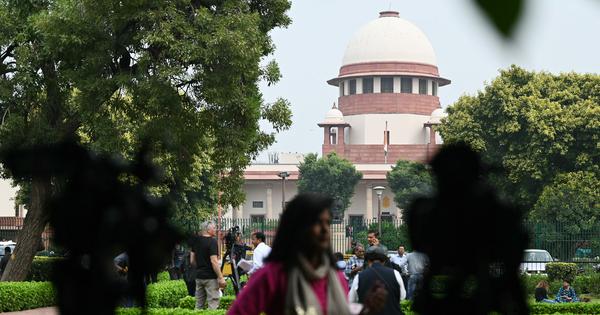
The Tamil Nadu government on Saturday moved the Supreme Court challenging the President’s refusal to grant assent to a 2021 bill that seeks to exempt students from the state from appearing for the National Eligibility cum Entrance Test, The Hindu reported.
NEET is a requisite for students to secure admission to undergraduate medical courses in India.
The Tamil Nadu Admission to Undergraduate Medical Degree Courses Bill was unanimously passed by the Legislative Assembly, in September 2021. The state argues that the President’s delay in taking a decision has created a “grave constitutional impasse”.
The state’s suit contends that assent was denied mechanically on the advice of the Union government without elaborating on the reasons, Bar and Bench reported.
Tamil Nadu has asked the Supreme Court to declare the refusal unconstitutional and to deem the Bill as having received assent under Article 254(2) of the constitution. In the alternative, the state has requested that the Bill be sent back to the President for fresh consideration.
The Tamil Nadu government has repeatedly contended that the medical entrance exam violates the principle of federalism as it takes away the power of states to admit students to medical colleges.
The question paper of NEET is based on the Central Board of Secondary Education syllabus, which is different from the Tamil Nadu state board’s academic curriculum, the state has argued.
“The NEET system had fuelled a parallel and highly commercialised coaching industry, which now generates thousands of crores annually,” The Hindu quoted the plea as saying. “Data reveals that in Tamil Nadu, more than 70% of students securing MBBS admissions post-NEET are ‘repeaters’, while first-generation learners from government schools are effectively excluded.”
Explainer: Why Tamil Nadu’s attempt to repeal NEET might be an uphill task
In April the Supreme Court had set timelines for governors and the president to assent to bills passed by legislatures.
The ruling came on a petition filed by the Tamil Nadu government after Governor RN Ravi did not act on several bills for more than three years before rejecting them and sending some to the president.
The court had held that governors must decide on bills within a reasonable time and cannot delay indefinitely under Article 200. Similarly, the president must act within three months under Article 201 and any delay beyond that must be explained and communicated to the state government.
Both provisions outline the process of assent to bills by governors and the president.
In May, President Droupadi Murmu made a reference to the court under Article 143(1) of the Constitution and the court reserved its verdict on the matter in September.
📰 Crime Today News is proudly sponsored by DRYFRUIT & CO – A Brand by eFabby Global LLC
Design & Developed by Yes Mom Hosting






